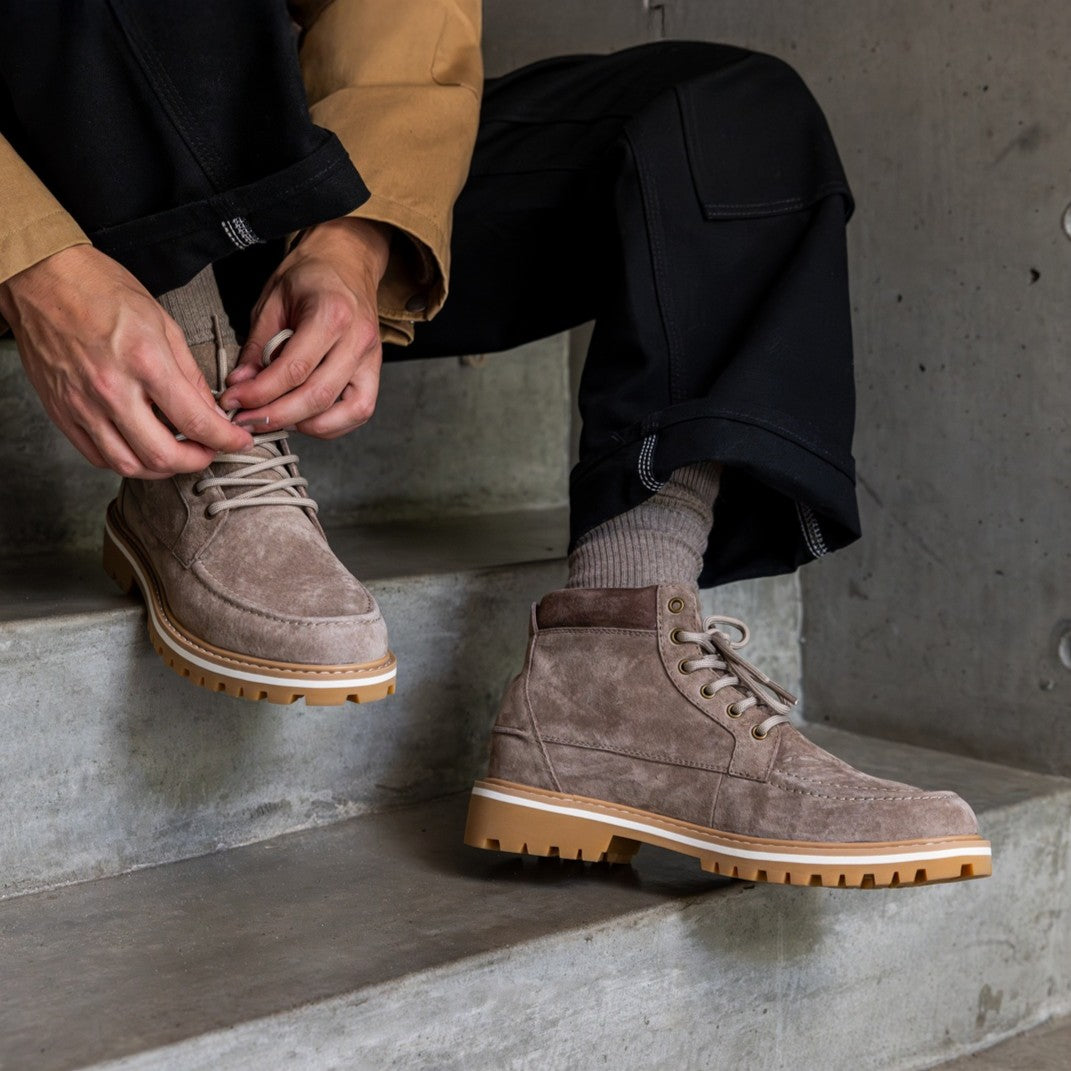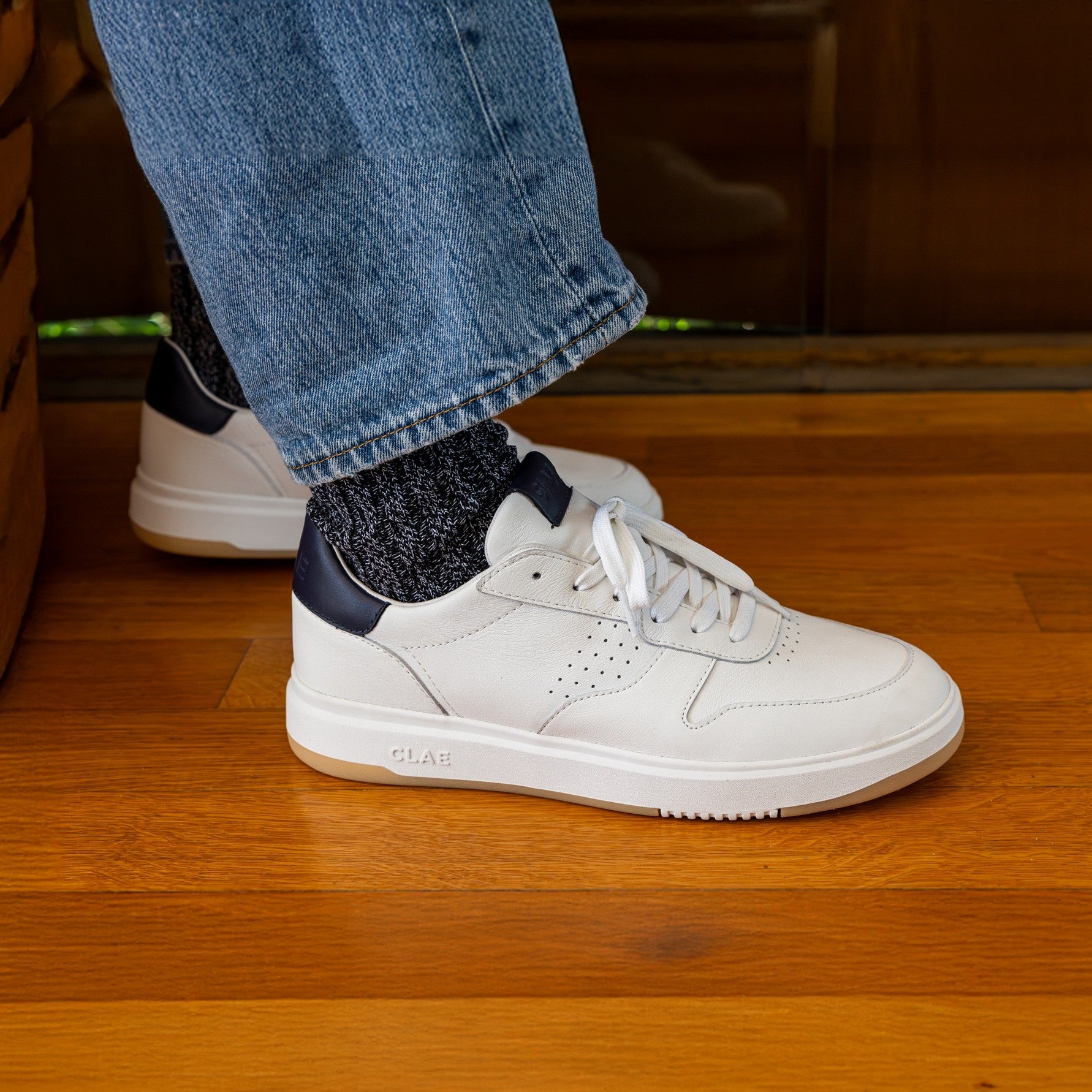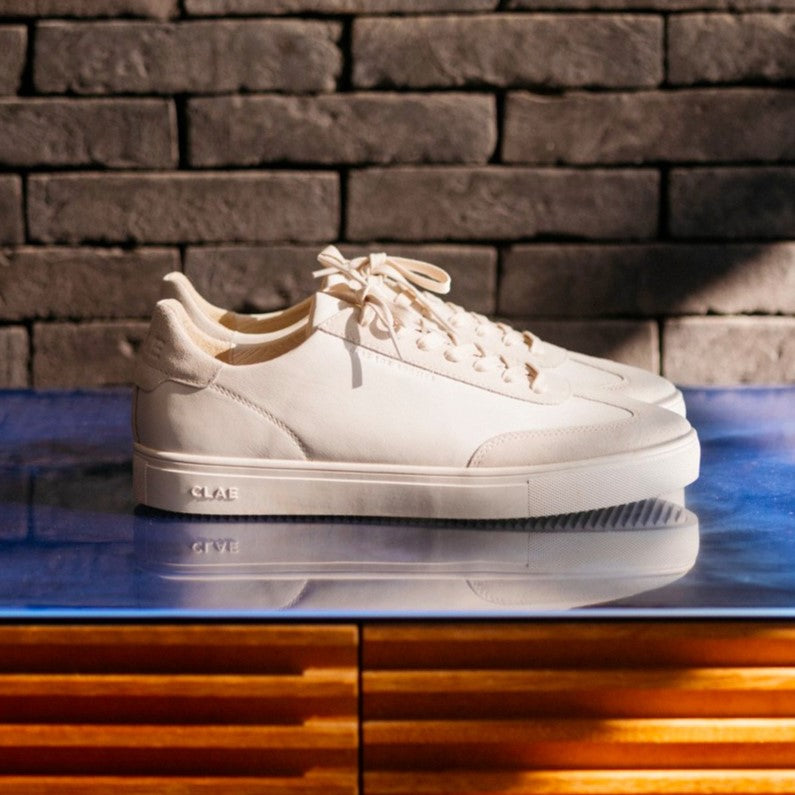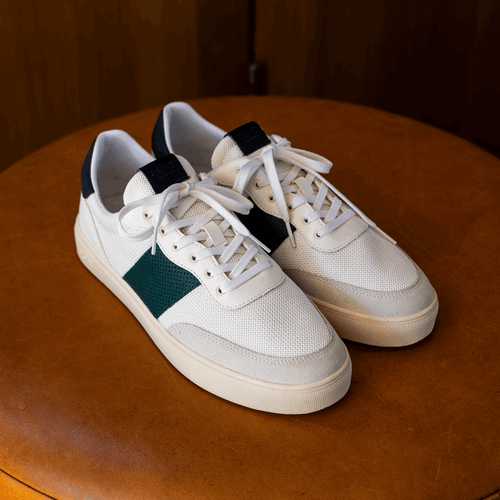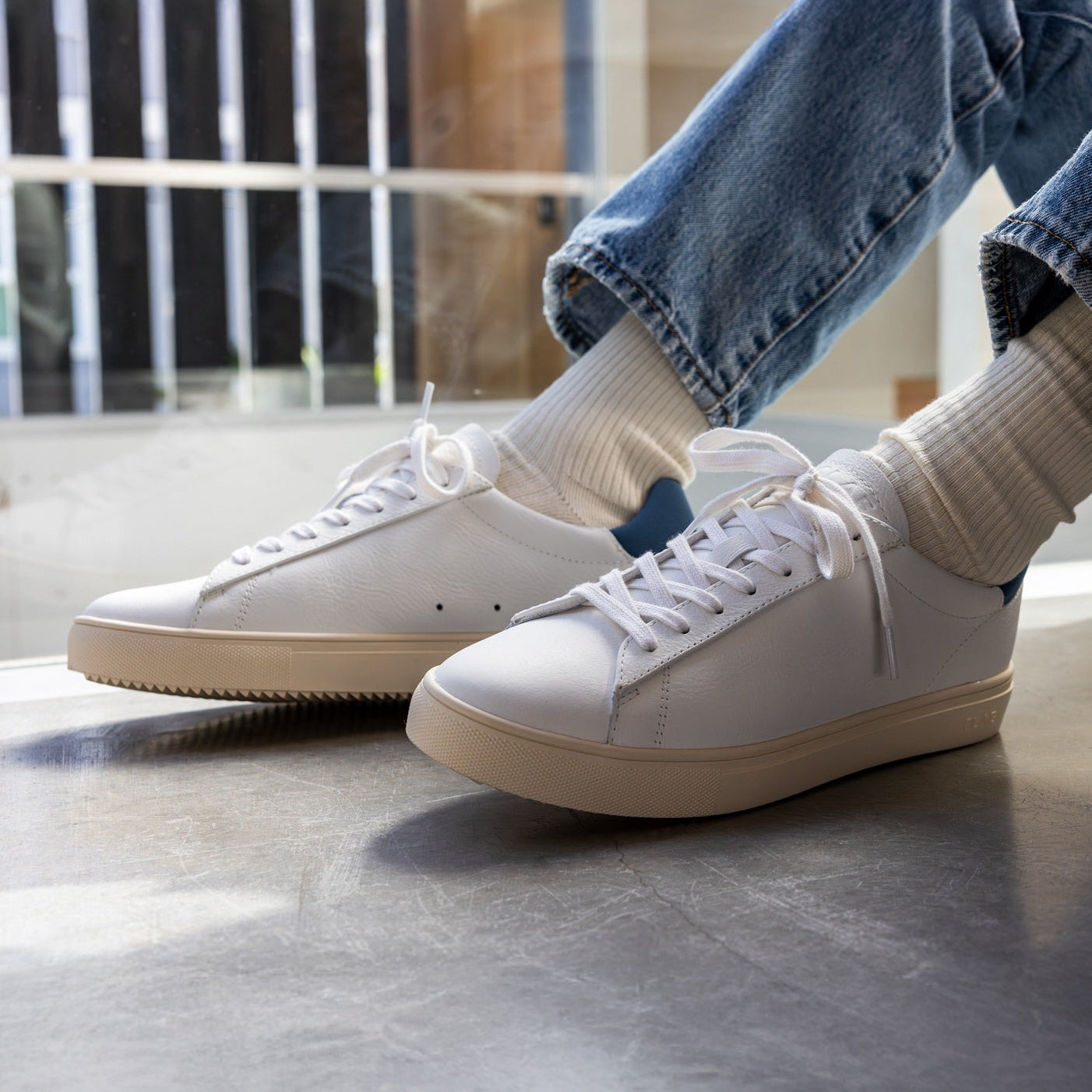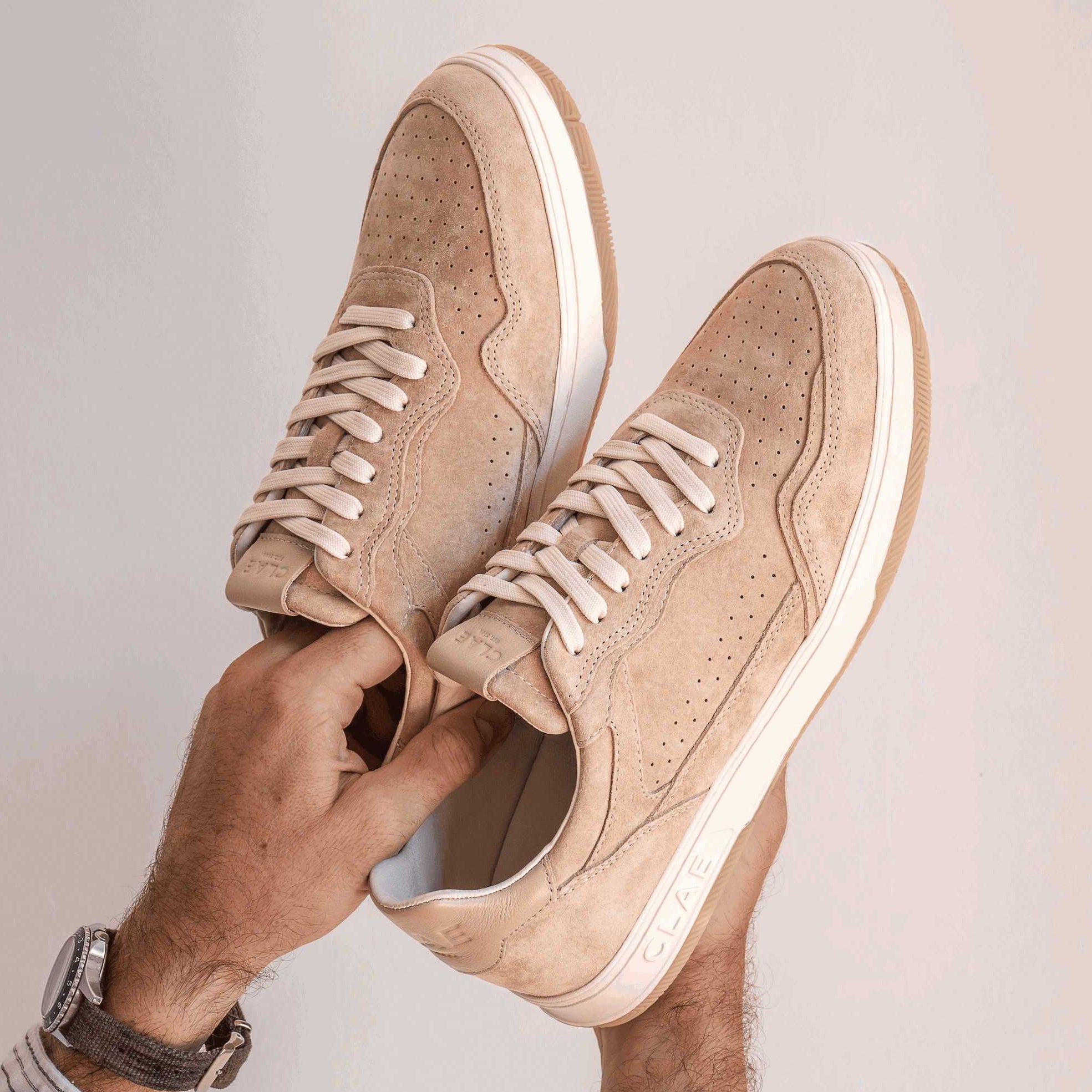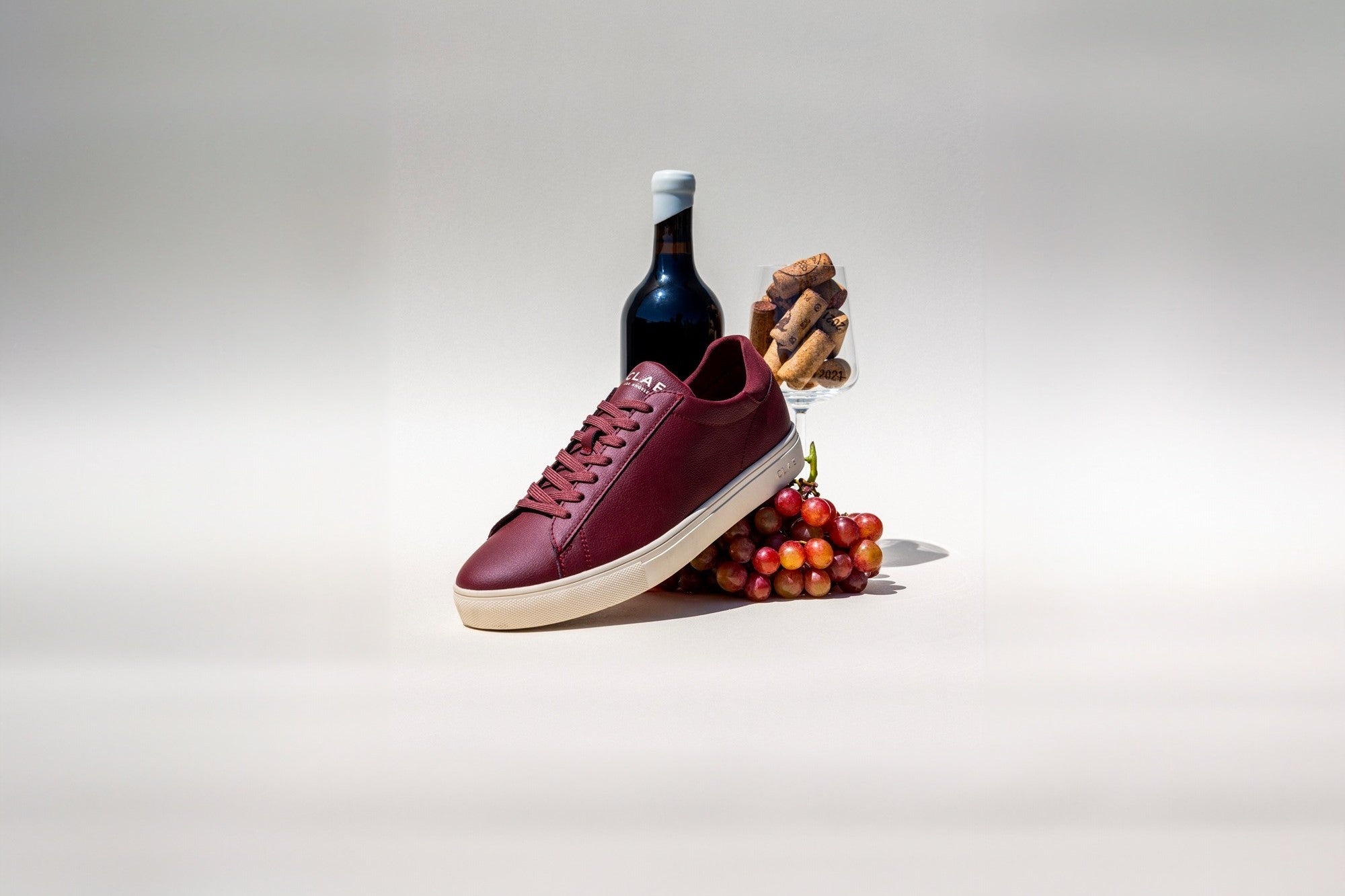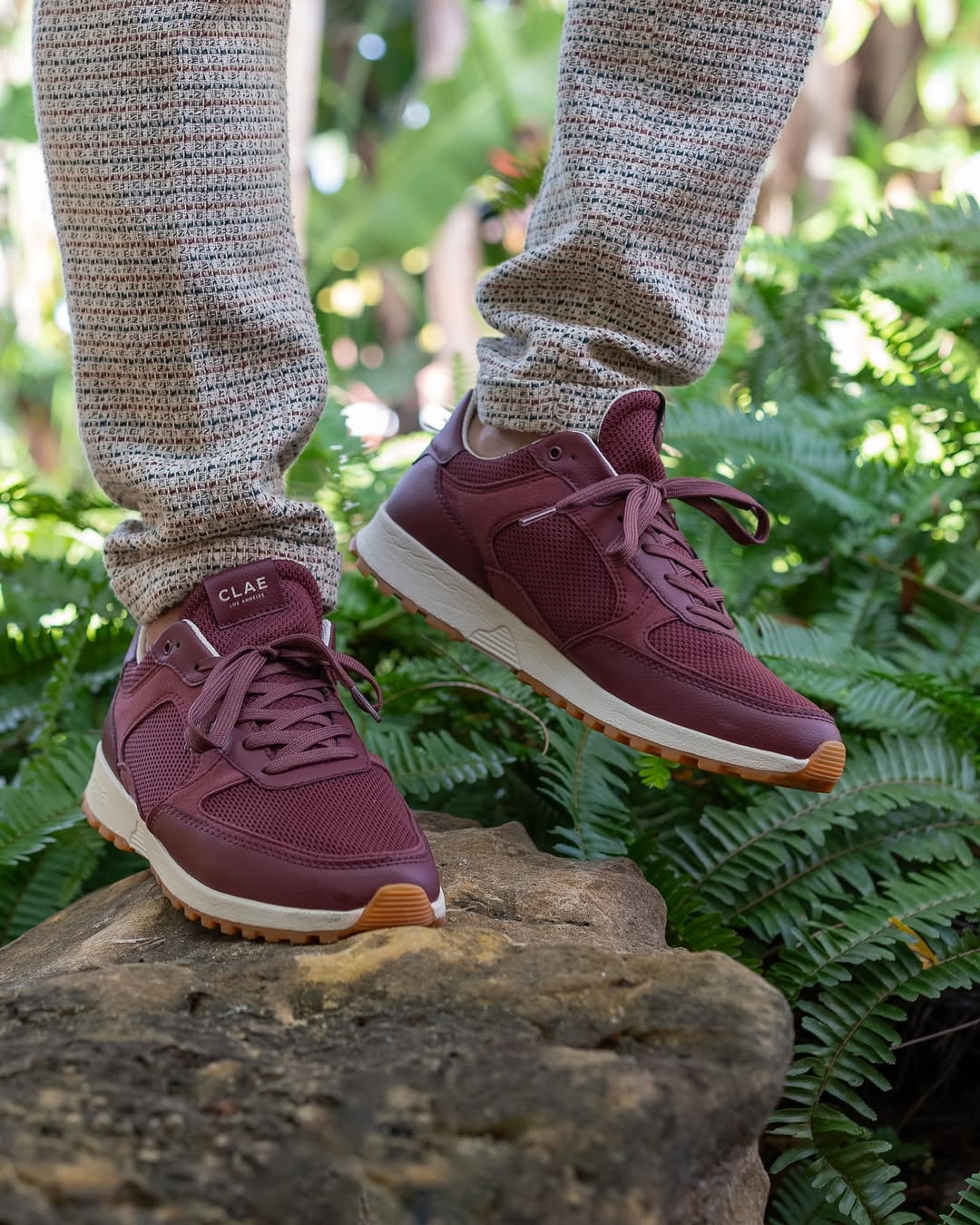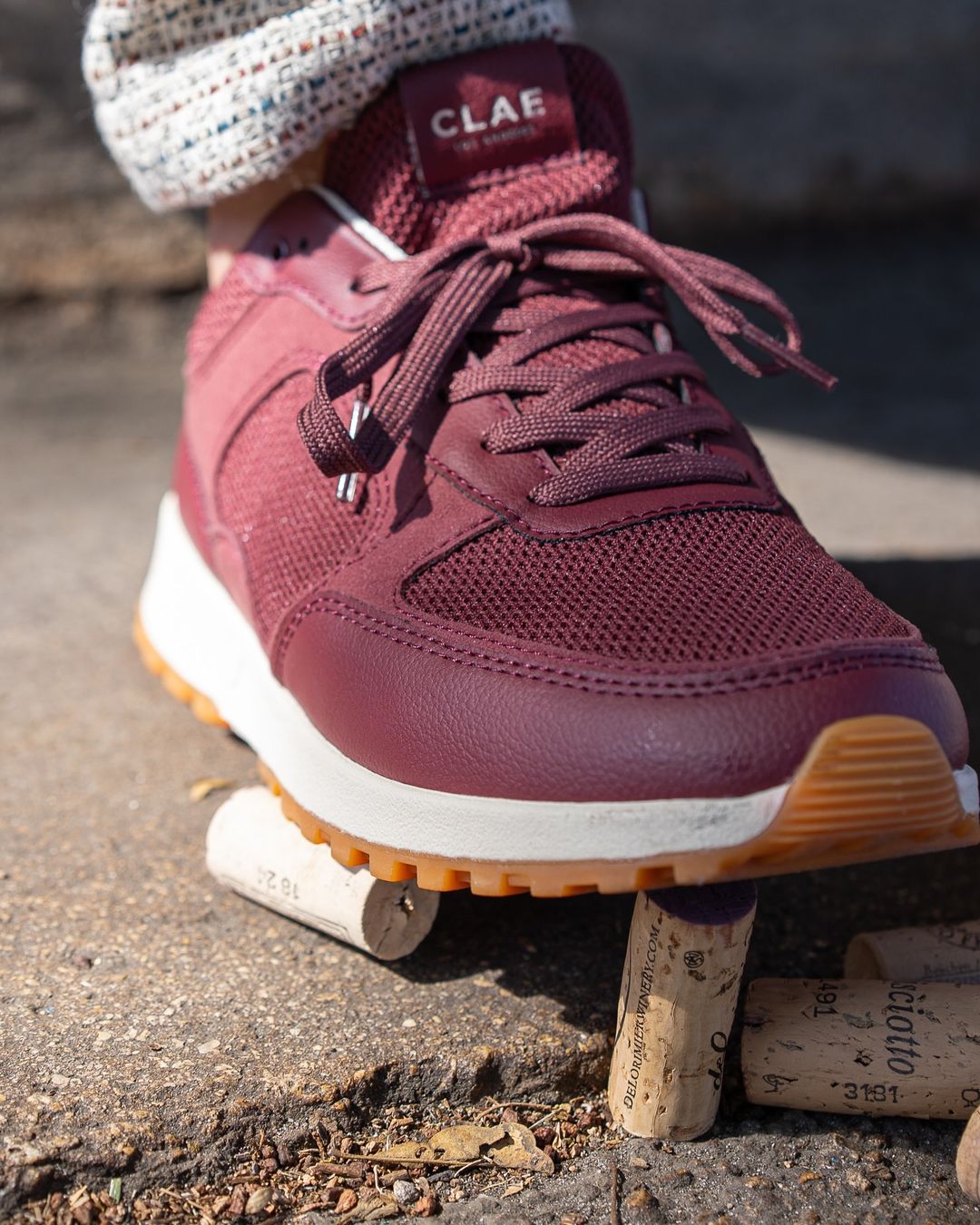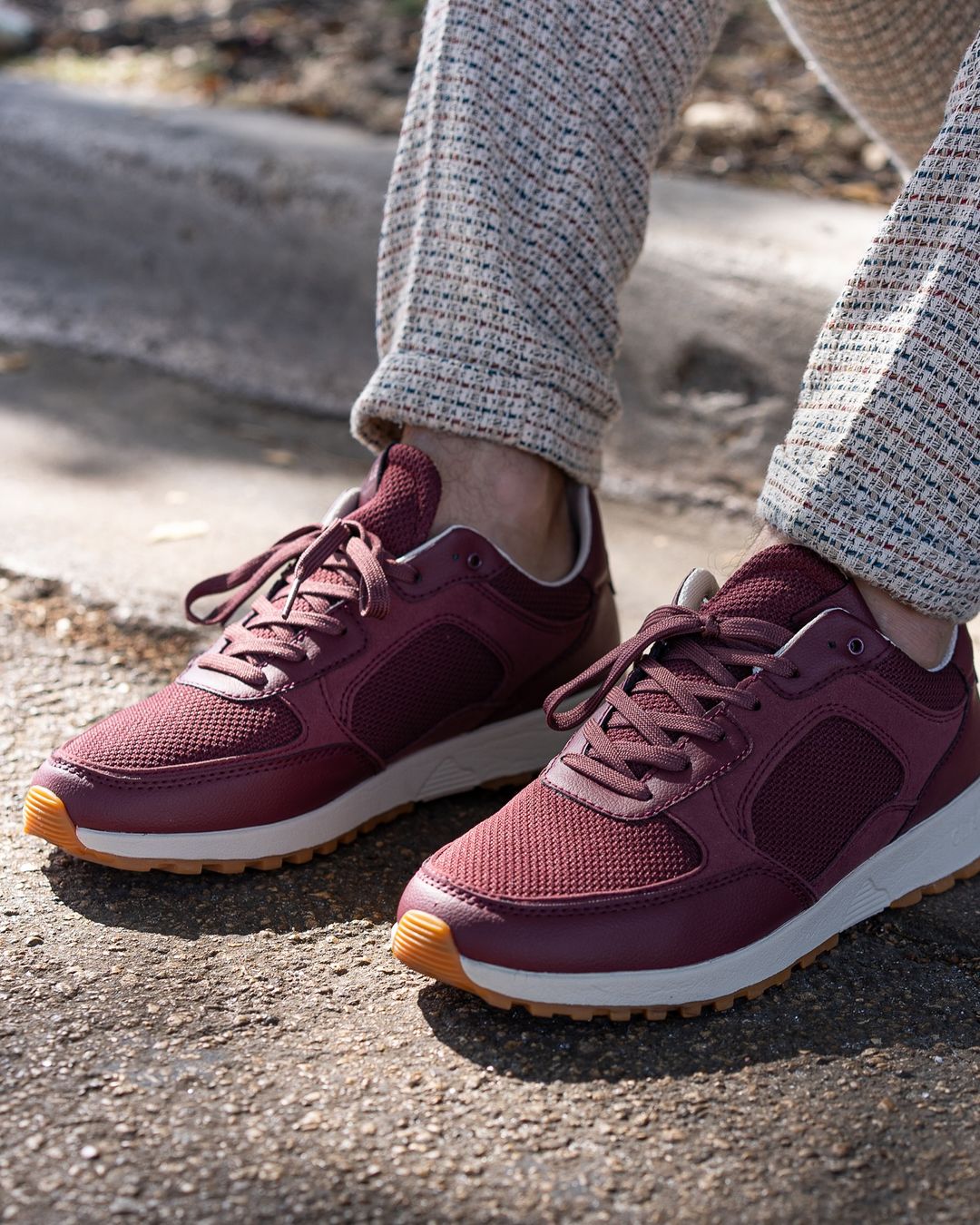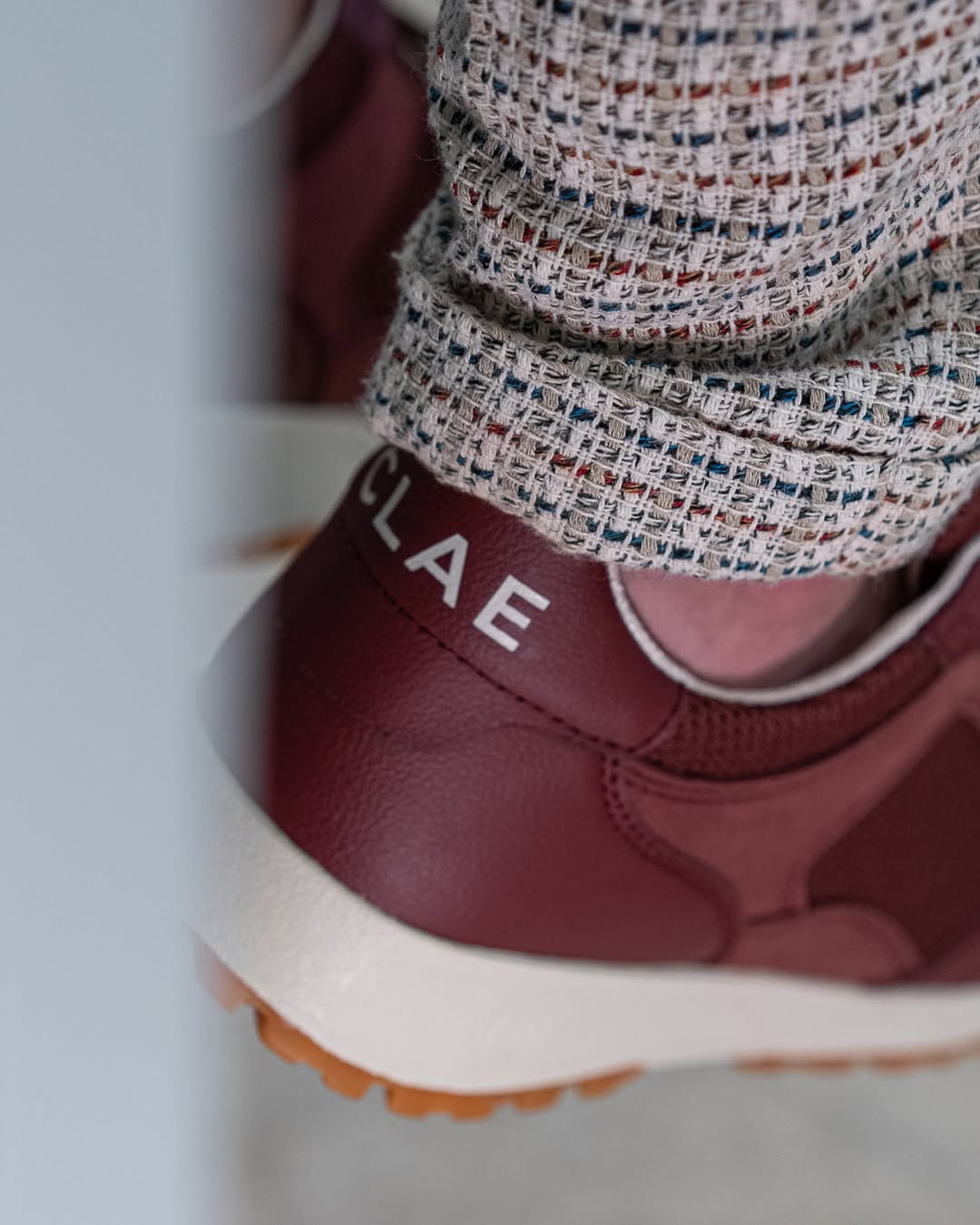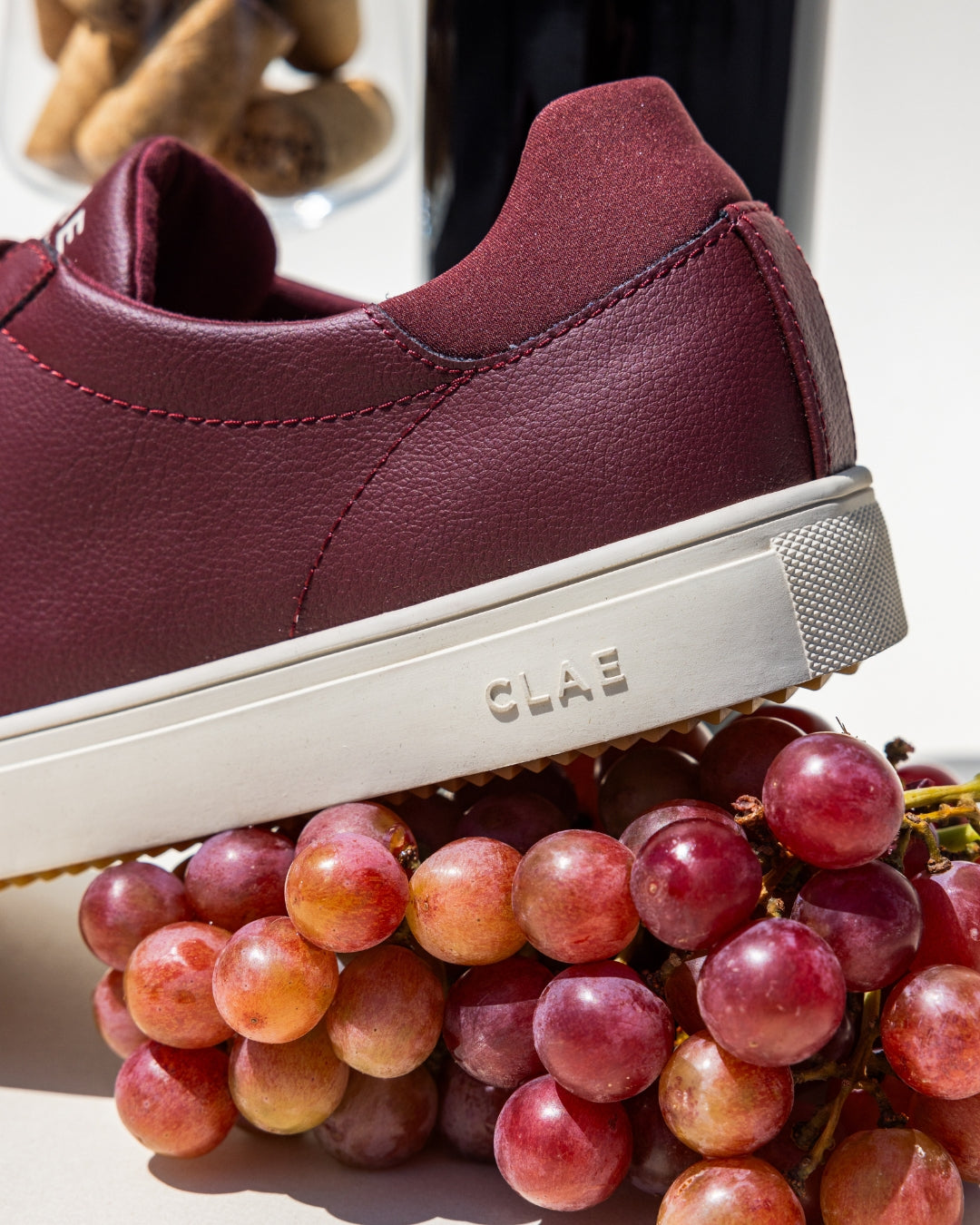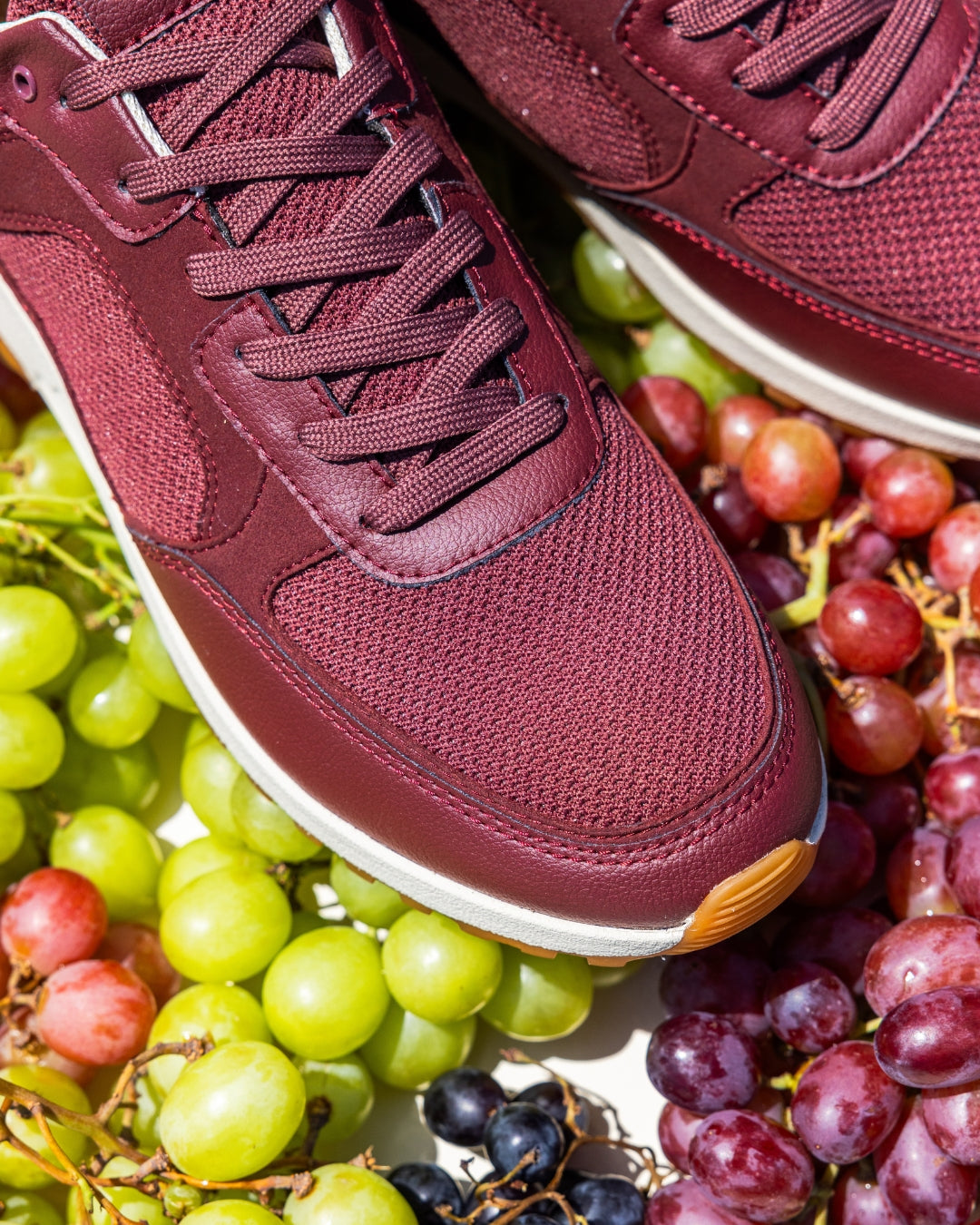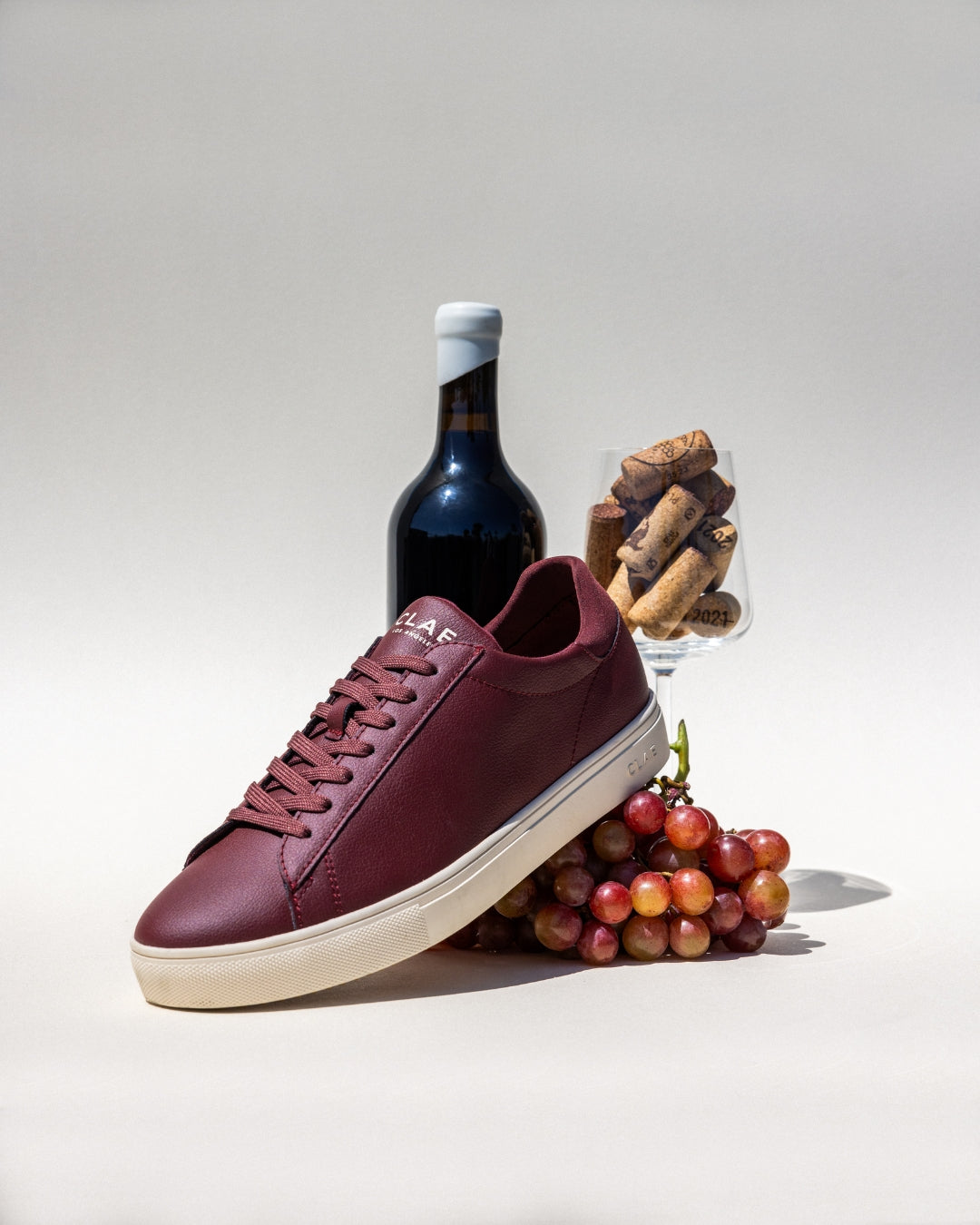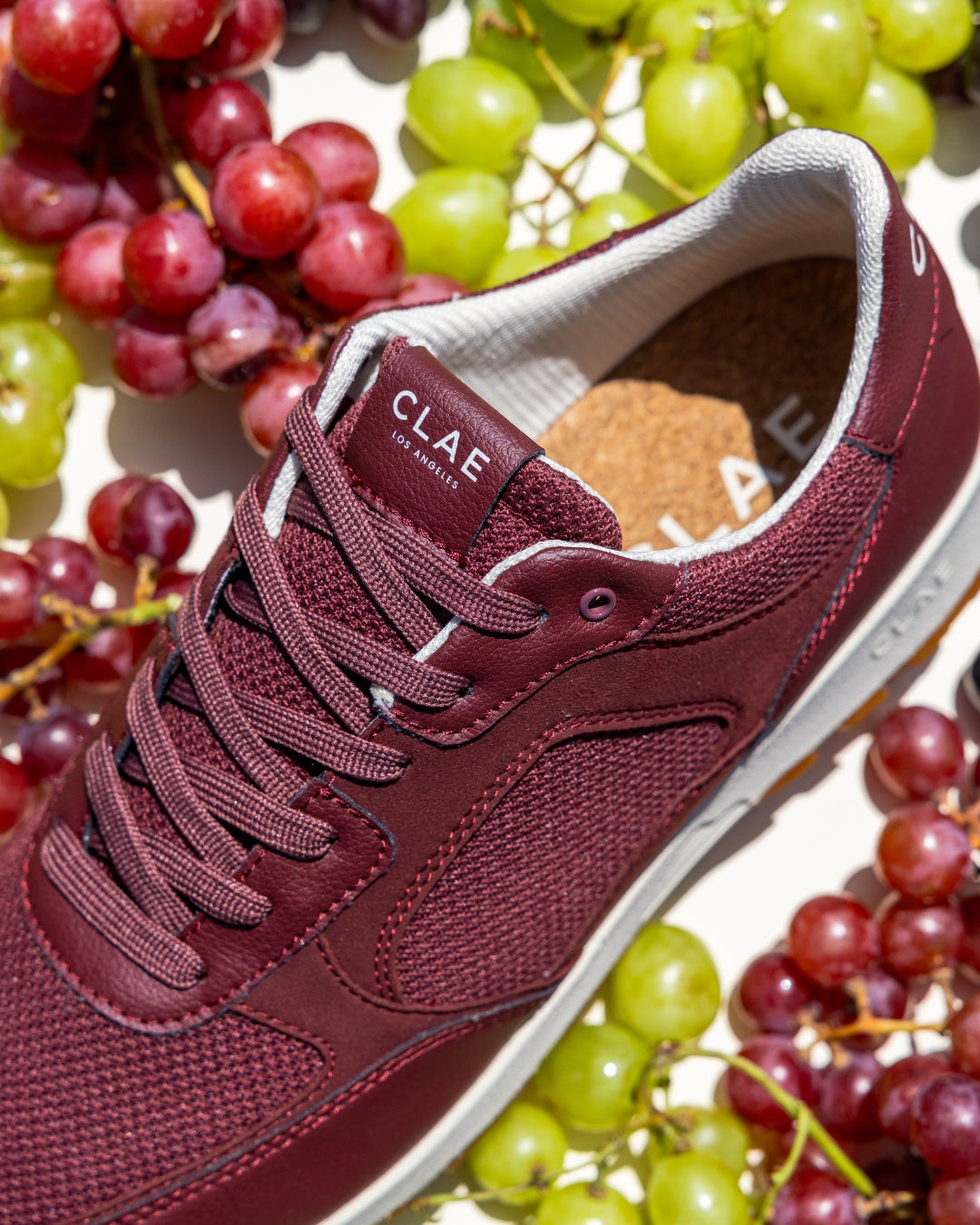Made from Wine Byproducts
Interview with Gianpiero Tessitore, Founder of VEGEA
In today’s world, where sustainability is becoming increasingly important, biomaterials company VEGEA is at the forefront of transforming the fashion industry. This innovative company creates sustainable materials that are both plant-based and eco-friendly utilizing byproducts from the wine industry.
Founded by Gianpiero Tessitore, a Milan-based architect, VEGEA bridges the gap between chemistry and agriculture to develop eco-conscious materials. In particular, the company demonstrates that sustainability can go hand in hand with luxury and style. In this interview, Tessitore sheds light on VEGEA's mission, the challenges it faces, and its impactful partnership with CLAE to create vegan shoes.
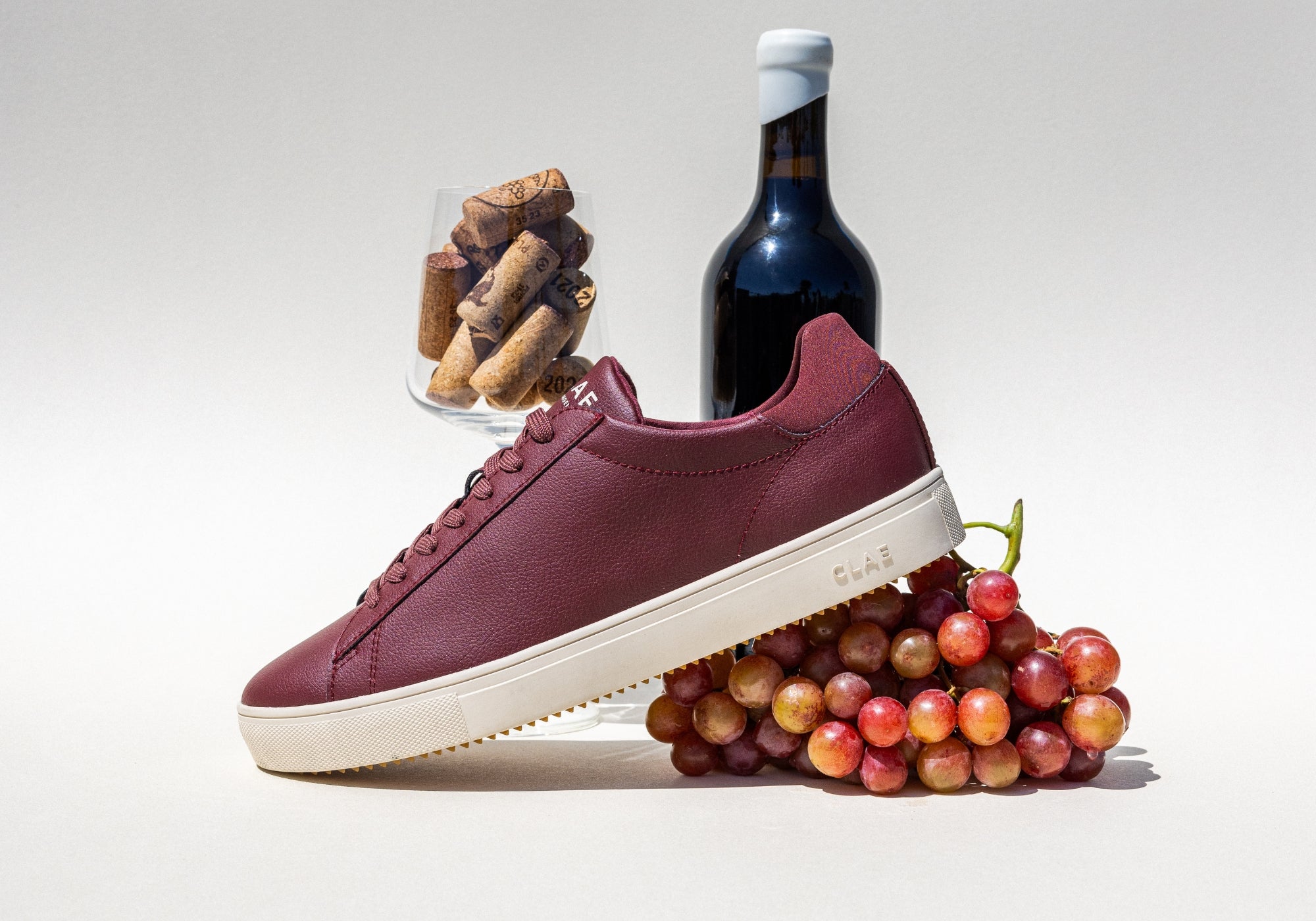
THE ORIGINS OF VEGEA
What inspired you to create sustainable materials using plants?
A few years ago, as an architect, I was looking for new solutions for customers who wanted to use alternatives to animal and oil-derived materials on eco-design projects. I started researching and investing in the development of innovative materials and finally founded VEGEA, a company that aims to promote the integration between chemistry and agriculture through the development of new eco-sustainable products.
How is VEGEA’s process different from traditional leather production?
We use renewable raw materials from agro-industry leftovers, such as grape skins and seeds. By repurposing these byproducts, we avoid planting new crops. In the light of this approach, we significantly reduce our environmental footprint.
How does VEGEA prioritize sustainability in materials and practices?
We focus on local raw materials and follow strict EU regulations. In addition, our production process protects people and the environment, ensuring compliance with ethical practices.
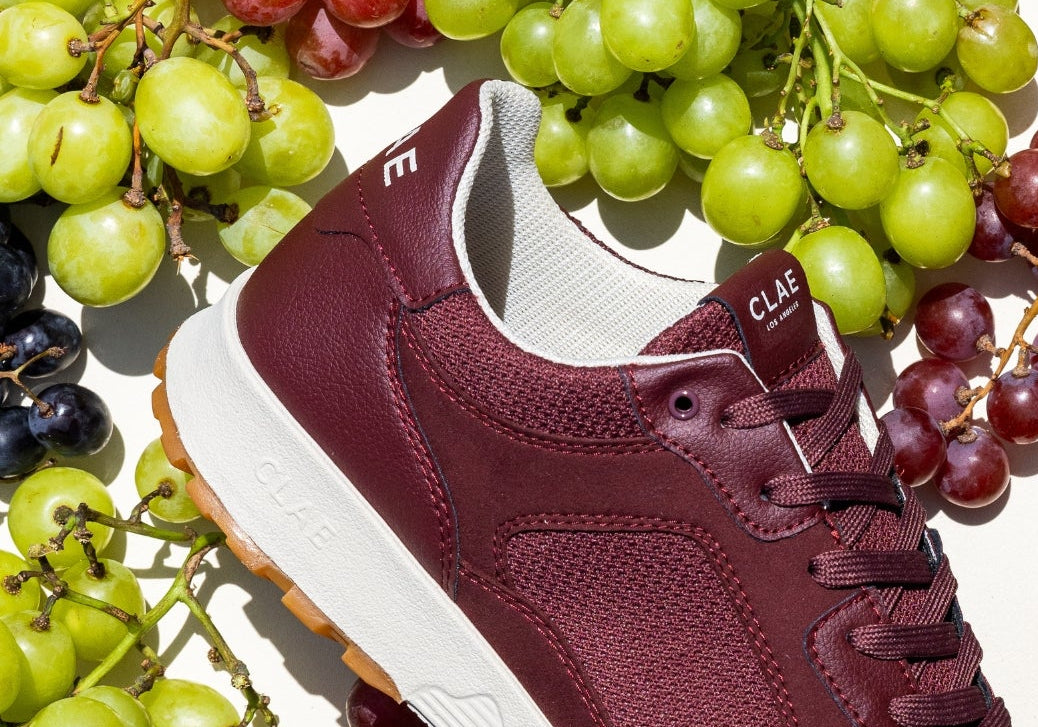
Overcoming Challenges
How does using grape waste contribute to a circular economy?
Grape skins and seeds, usually discarded after winemaking, become valuable resources. For instance, we use patented treatments to process them into Grapeskin, a material perfect for vegan shoes. In other words, we transform waste into something purposeful and sustainable.
What challenges do you face in scaling sustainable production?
Sustainability requires continuous investment. For one thing, raw materials, maintenance, and R&D costs are higher than those for traditional, oil-based products. However, we believe these efforts are crucial to ensuring an eco-conscious future.
Does VEGEA have certifications for sustainability?
Yes, VEGEA holds GRS certification. This certification verifies recycled content, traceability, and environmental responsibility. To clarify, these certifications are vital for building trust and credibility with our partners.
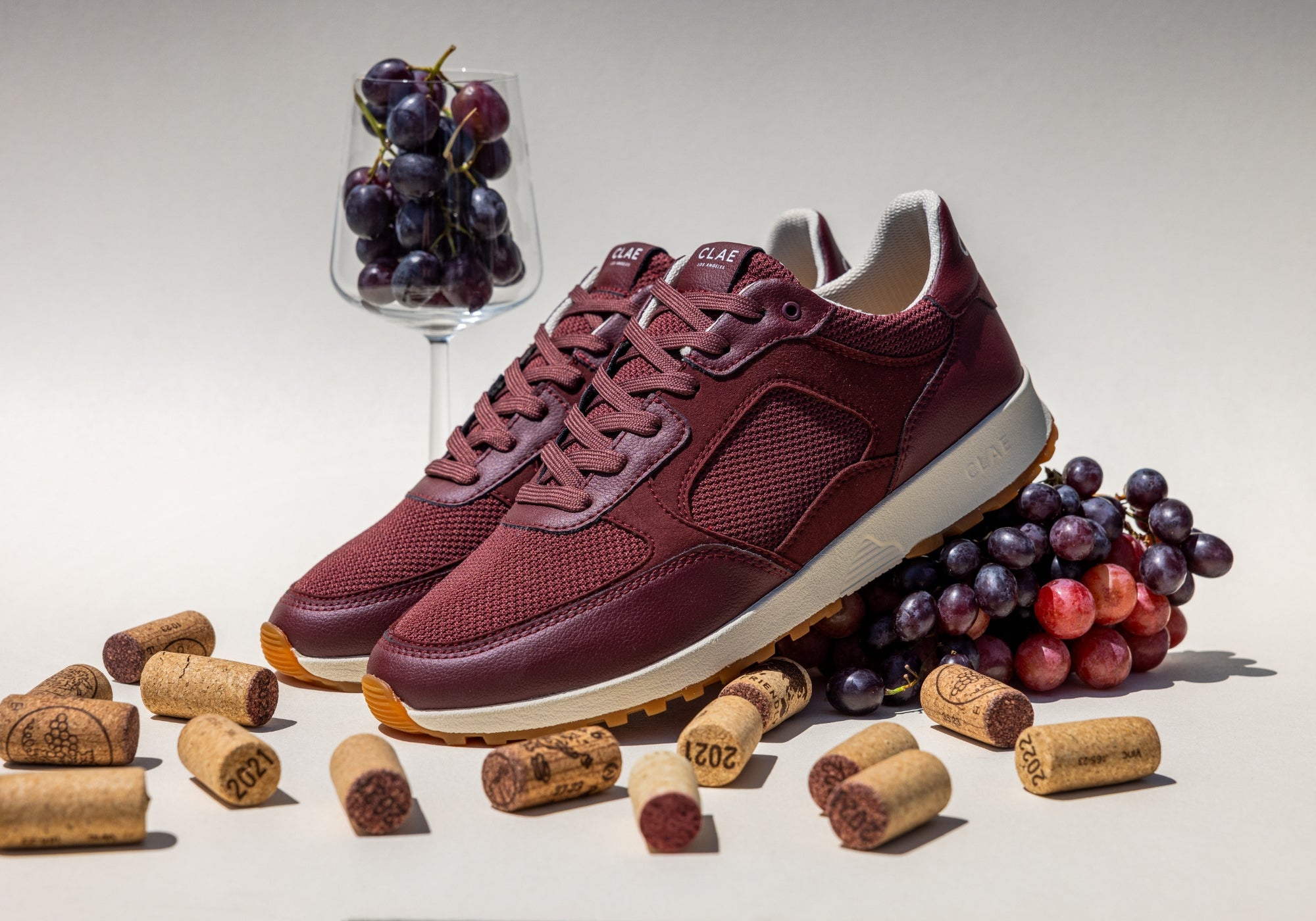
Upcoming Initiatives
How do you see VEGEA shaping the future of fashion?
We invest in R&D to meet brands' needs for sustainable and beautiful materials. For example, vegan shoes are a key part of this vision. What’s more, we aim to inspire others in the industry to adopt plant-based innovations.
Where do you see the industry in 5–10 years?
In the future, traditional materials will almost completely be replaced by certified recycled and plant-based materials with a lower environmental impact.
What advice would you give to those pursuing sustainability?
My advice is to always find a place in the company for R&D activities and hire people who specialize in sustainability in order to make a serious ecological transition.
Are there any upcoming initiatives you can share?
In 2025, we will continue our collaboration with FAO (Food and Agriculture Organization), which we started in 2023. In particular, VEGEA is displaying its circular economy model at the Office of Climate Change, Biodiversity and Environment.
VEGAN SNEAKERS
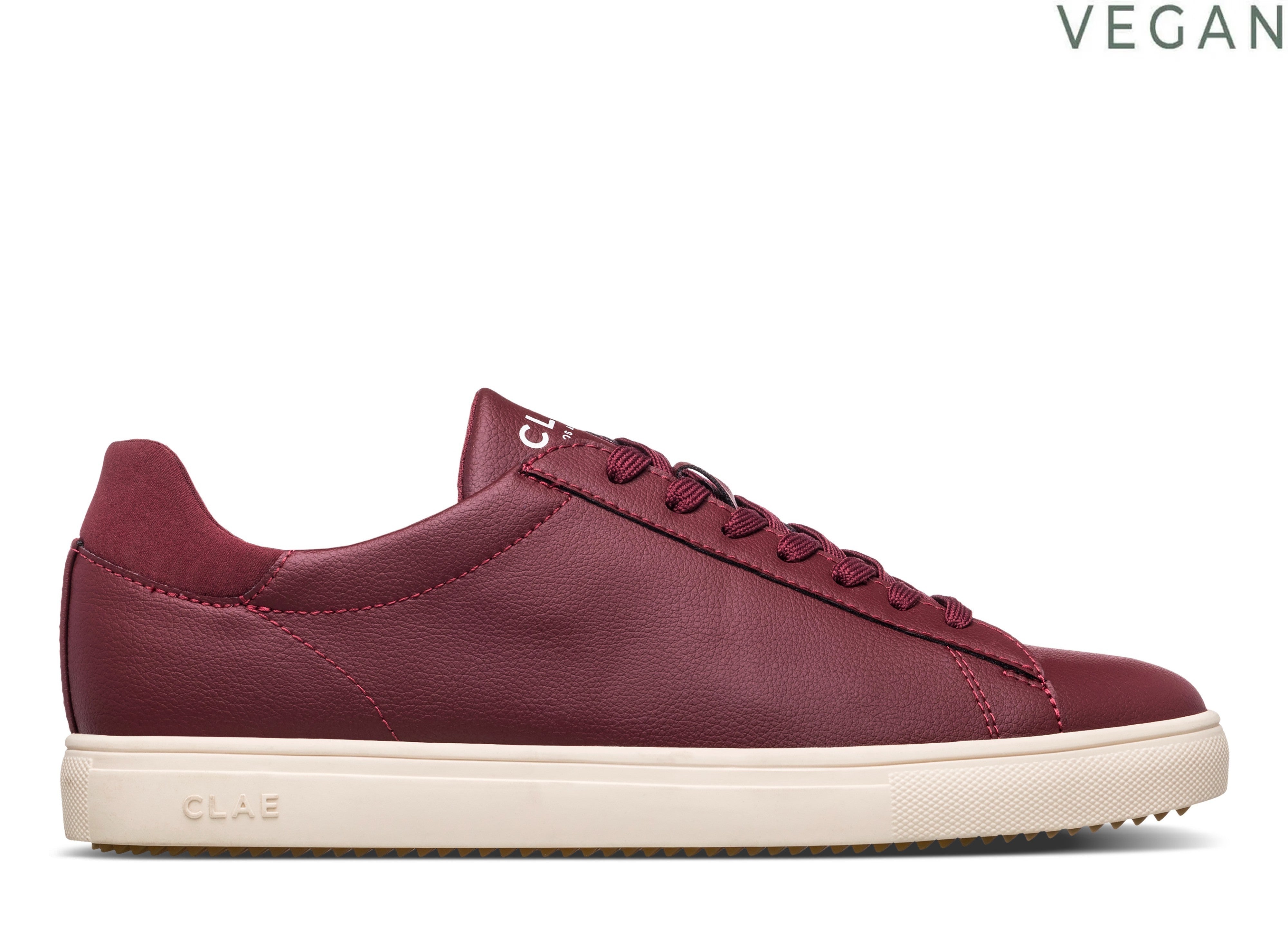
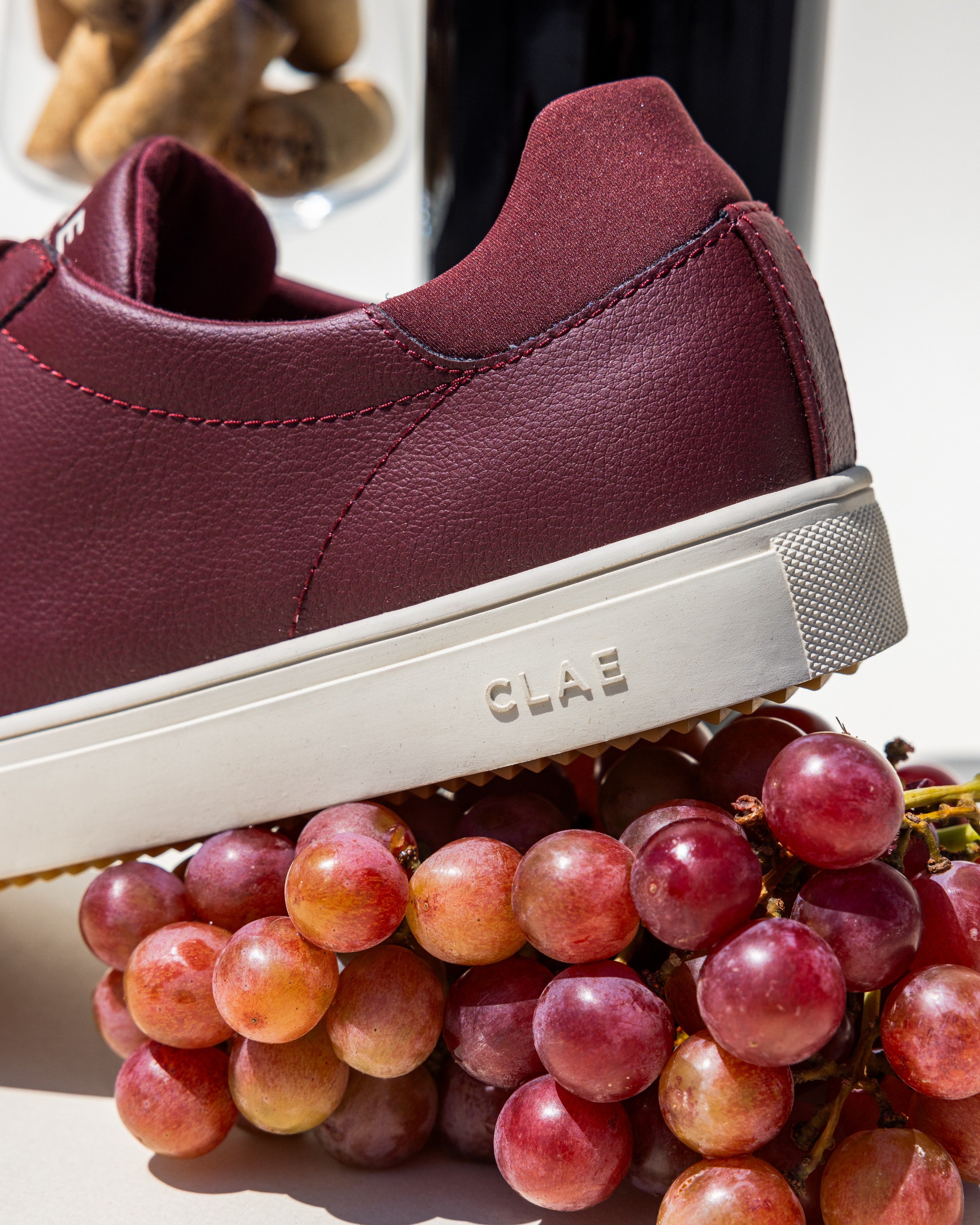
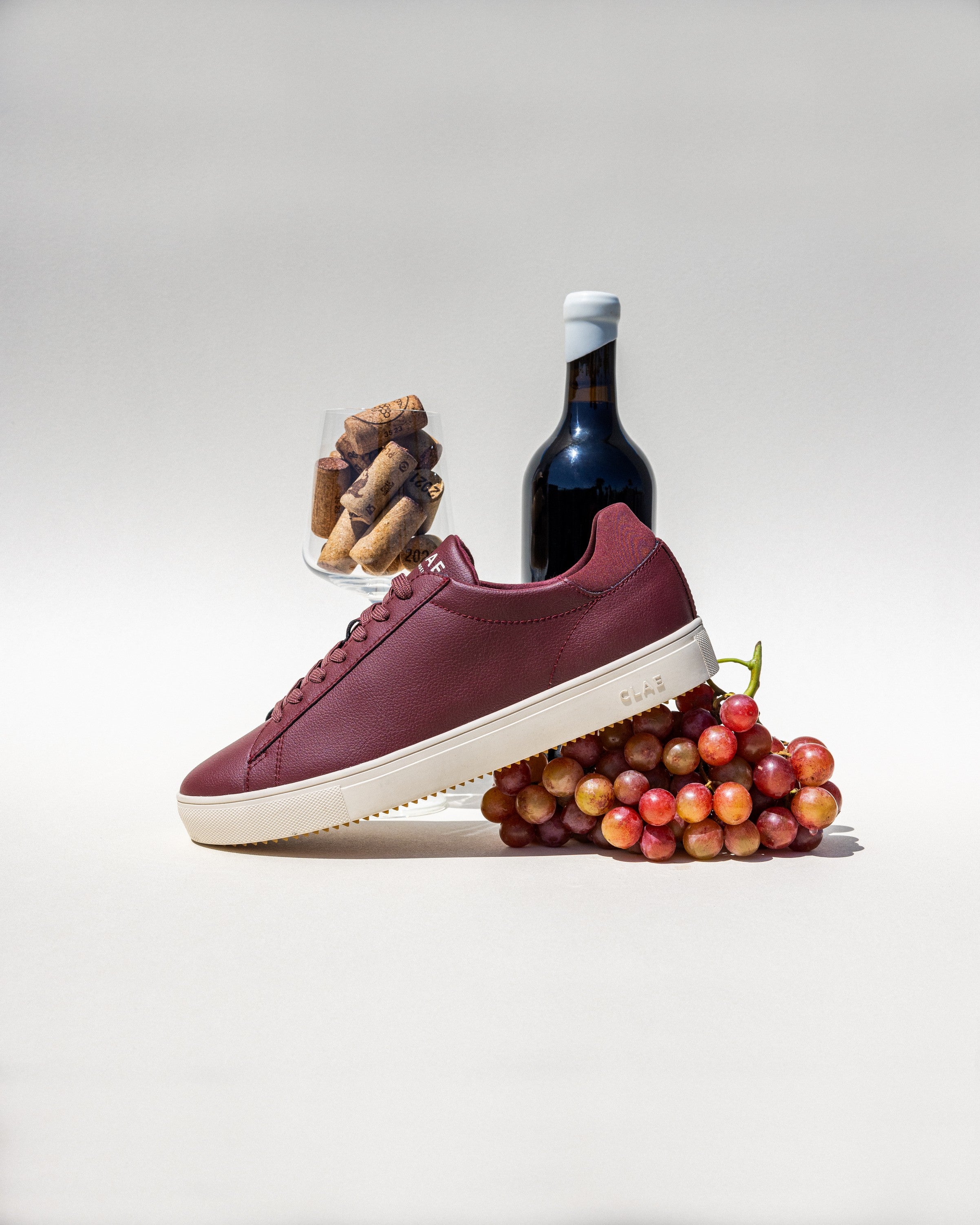
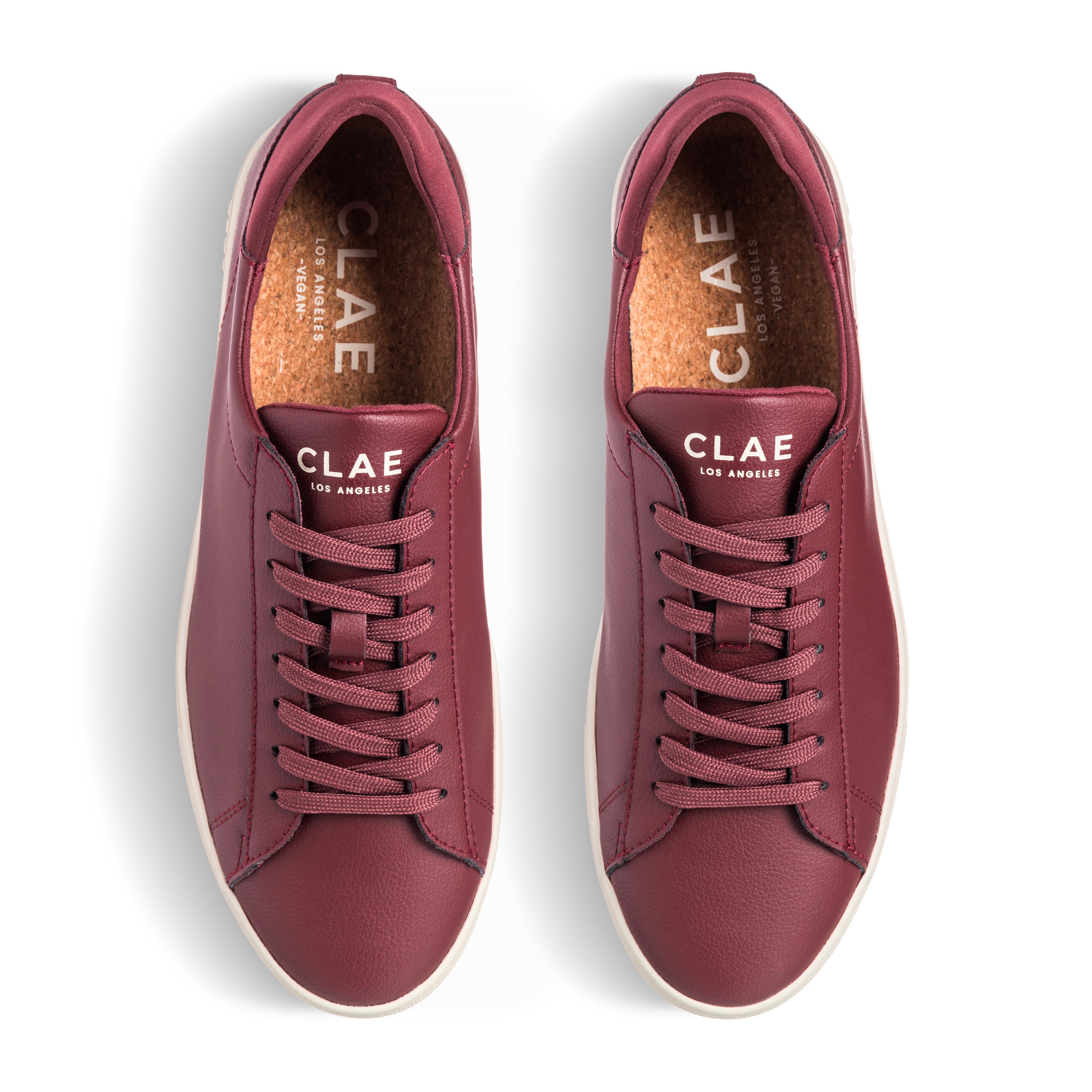
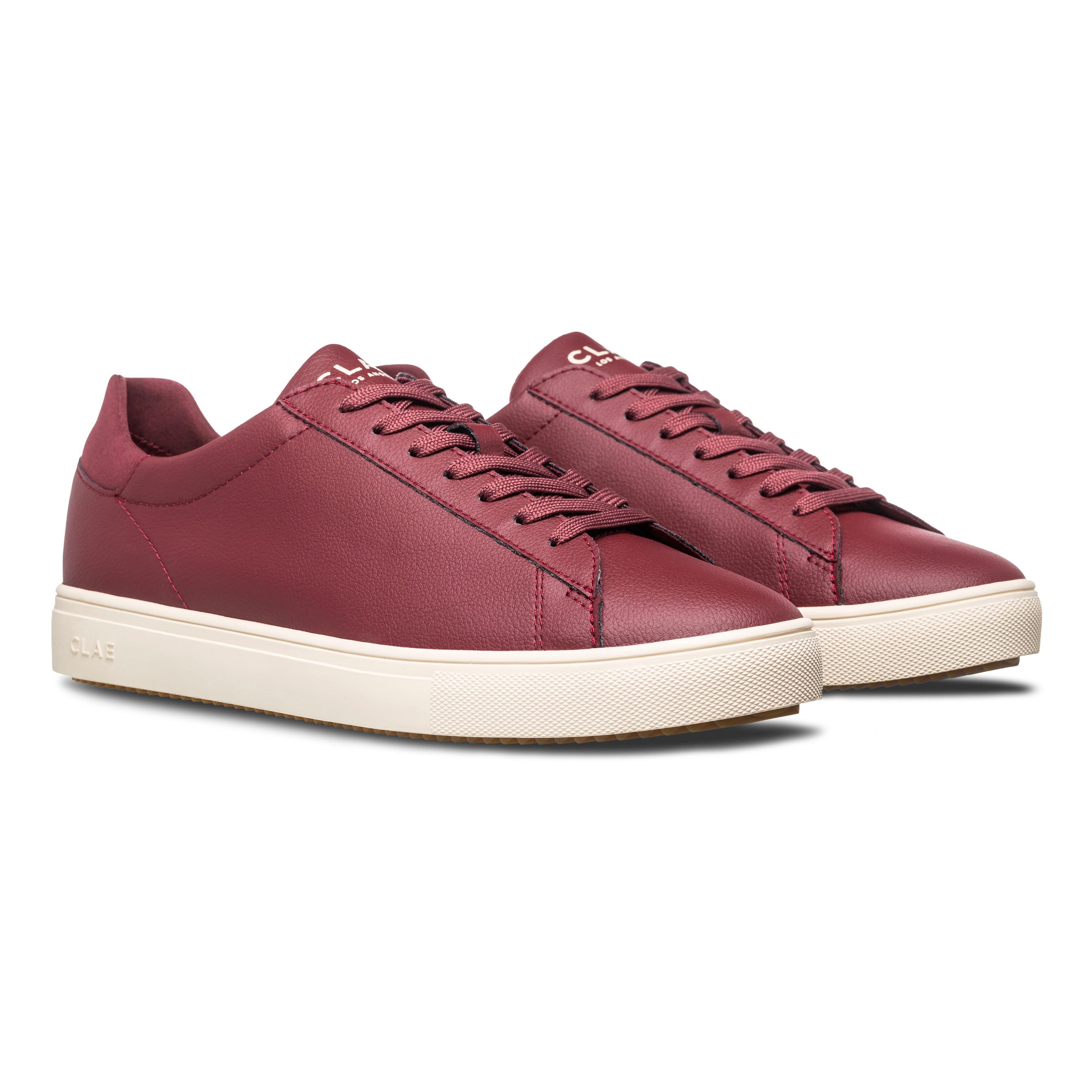
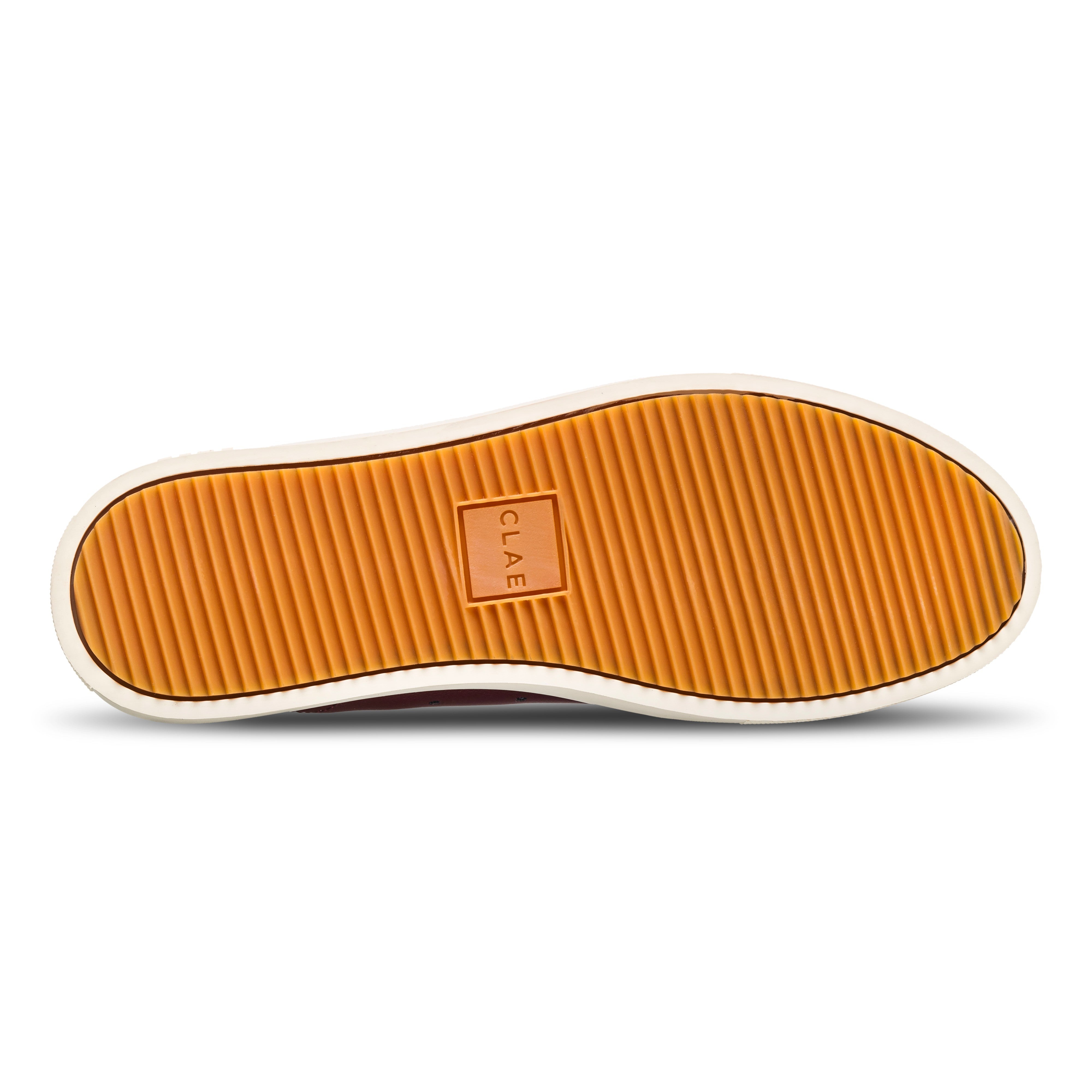
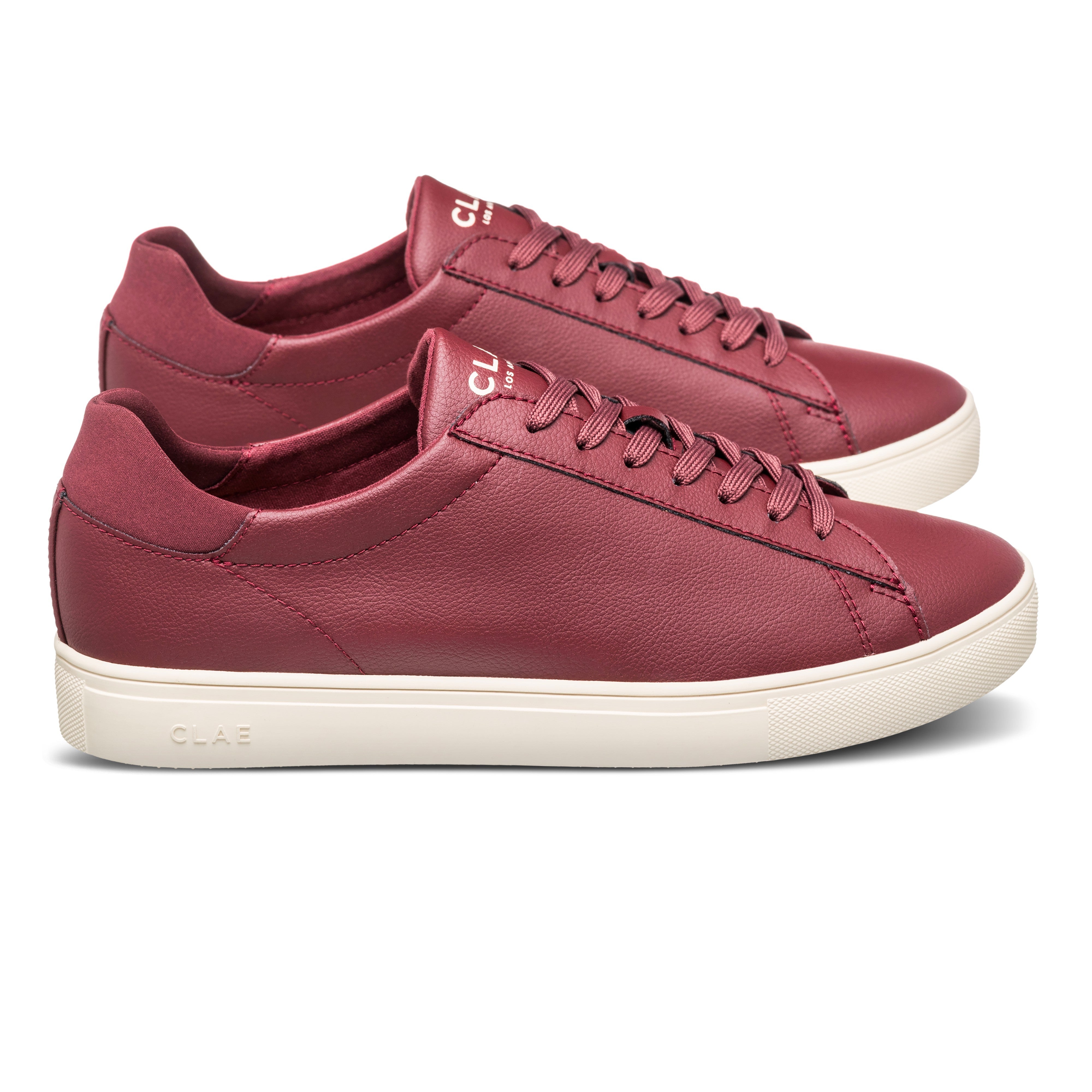
BRADLEY GRAPE
Bordeaux-
Grapeskin™ and neoprene upper
- GOTS-certified organic cotton lining
- Naturally antibacterial cork footbed for barefoot wear
- Standard Premium (SP) outsole made out of 30% natural rubber

READ MORE

Getting ready for the holiday season means treating yourself too. Explore our team's recommendations to discover thoughtful gifts, and consider a footwear update for yourself.
Read more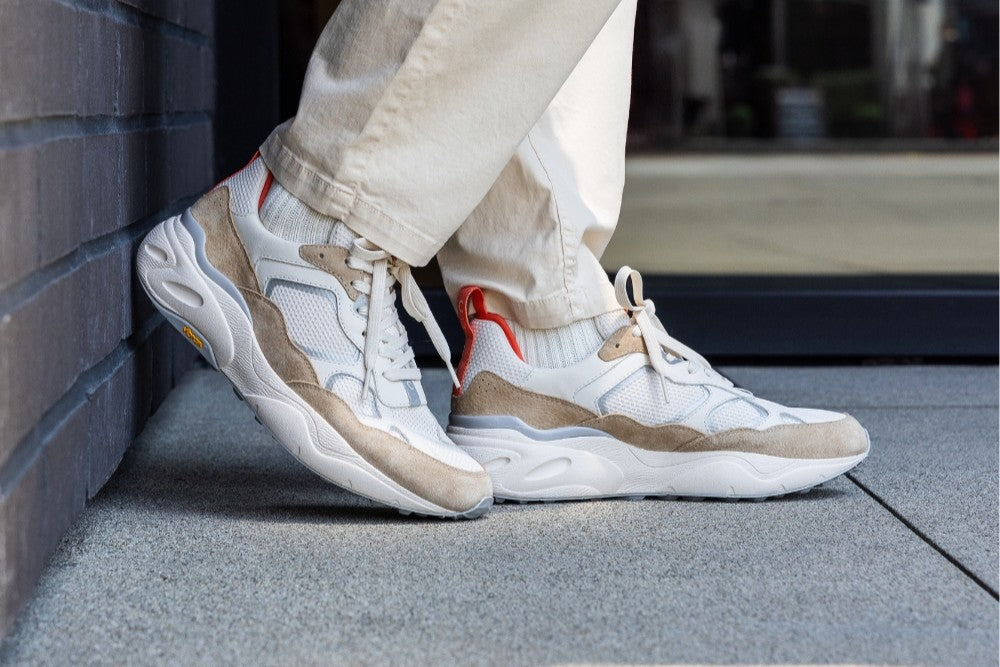
Explore our Autumn/Winter 2025 lookbook, a curated selection of essential silhouettes and refined materials designed for modern everyday wear.
Read more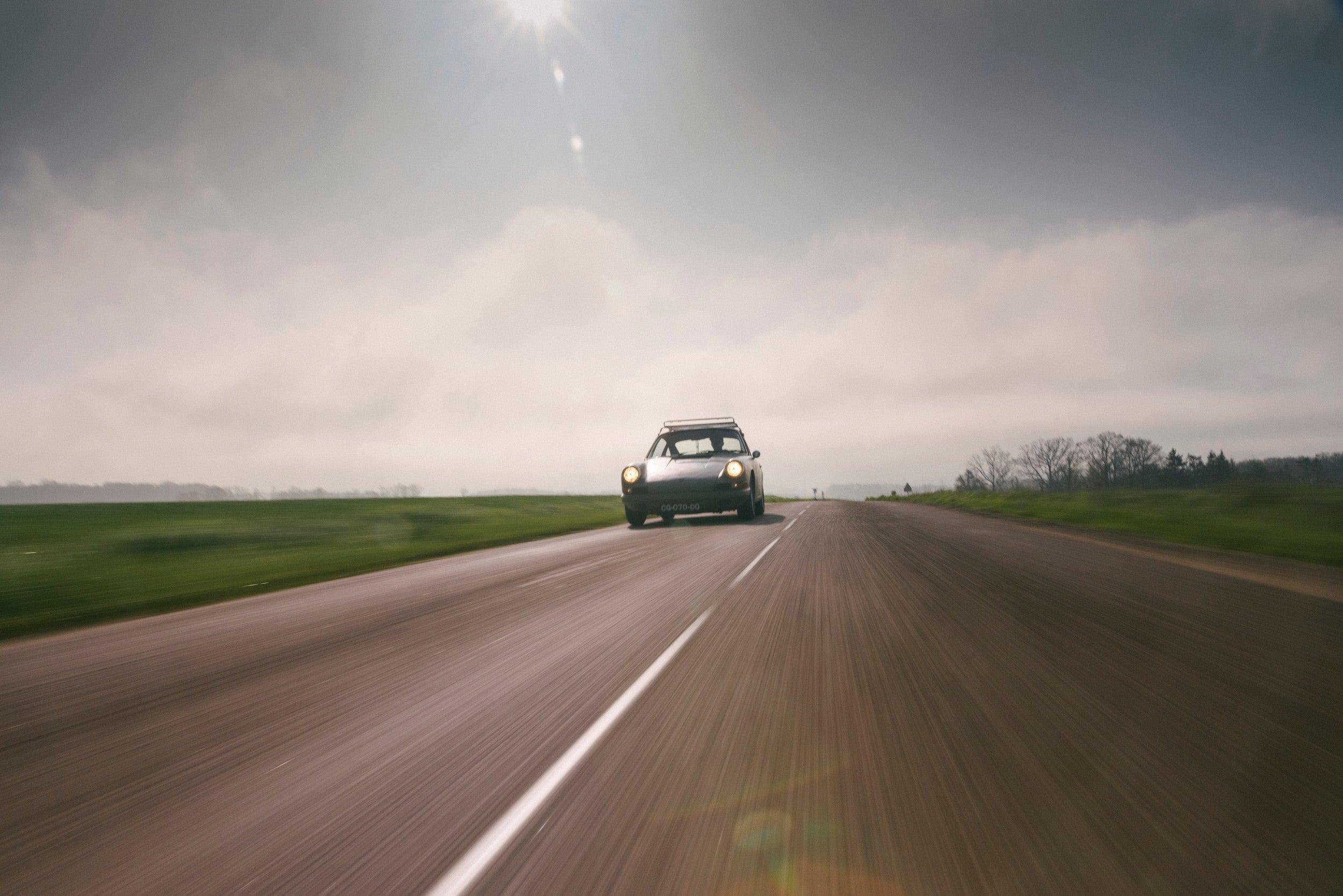
CLAE x VINCE PERRAUD We are pleased to collaborate with a talented photographer, Vince Perraud. OUR COLLABORATION His 1968 Porsche 912 dubbed “Cactus” was the s...
Read more

